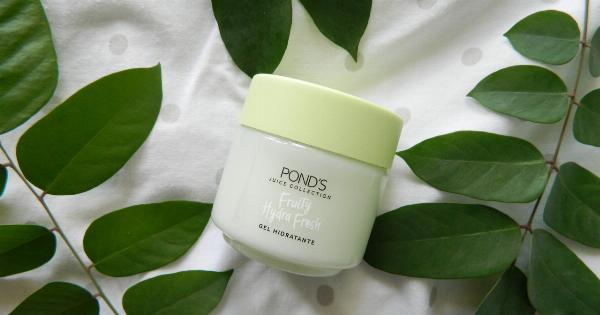Acne is a common skin condition that affects millions of people, regardless of age or gender. It is characterized by the appearance of pimples, blackheads, whiteheads, and cysts on the skin.
While hormonal changes and genetics play a significant role in acne development, several external factors known as acne triggers can worsen the condition. Understanding and avoiding these triggers is crucial in managing acne effectively. In this article, we will explore the top acne triggers and provide you with the information you need to keep your skin healthy and blemish-free.
1. Hormonal fluctuations
Hormonal fluctuations are one of the primary internal factors that trigger acne. During puberty, hormonal changes increase the production of sebum, an oily substance that clogs the pores and promotes the growth of acne-causing bacteria.
Women may experience hormonal acne during their menstrual cycle, pregnancy, or menopause. Hormonal imbalances can also result from certain medical conditions such as polycystic ovary syndrome (PCOS) or hormonal disorders.
2. Poor skincare routine
Your skincare routine can significantly impact the condition of your skin. Failing to cleanse your face thoroughly, using harsh chemicals, or over-washing your face can strip away the natural oils and disrupt the skin’s balance.
This can lead to increased oil production and clogged pores, causing acne breakouts. Using non-comedogenic products and gentle cleansers suitable for your skin type is essential in maintaining a healthy skincare routine.
3. Diet and dietary habits
While the relationship between diet and acne is still unclear, certain foods and dietary habits have been associated with worsening acne symptoms.
High-glycemic foods, including sugary snacks, processed carbohydrates, and sugary drinks, have been linked to increased sebum production and inflammation in the body, both of which can contribute to acne development. Dairy products and foods rich in saturated fats have also been suggested to play a role in acne flare-ups for some individuals. It is advisable to adopt a balanced diet and observe how different foods may affect your skin.
4. Stress
Stress can have a noticeable impact on your overall health, including your skin. When you are stressed, your body releases hormones such as cortisol, which can trigger oil production and inflammation, leading to acne breakouts.
Additionally, stress may also disrupt your regular skincare routine, causing you to neglect proper cleansing and care of your skin. Finding effective stress management techniques, such as exercise, relaxation exercises, or engaging in hobbies, is essential in maintaining healthy skin.
5. Environmental factors
The environment you live in can contribute to the development and aggravation of acne. Exposure to pollutants, dirt, and excessive humidity can clog the pores and increase the likelihood of acne breakouts.
Additionally, wearing tight clothing or using non-breathable materials, such as helmets or caps, can trap sweat and bacteria on the skin, leading to acne. It is essential to maintain proper hygiene, wash your face after sweating, and choose breathable fabrics to minimize the impact of environmental factors on your skin.
6. Medications
Certain medications have been associated with acne development or worsening of existing acne. These include corticosteroids, hormonal contraceptives, anticonvulsants, and some antidepressants.
If you suspect that your medication is contributing to your acne, it is crucial to discuss this with your healthcare provider. They may be able to suggest alternative medications or adjust your dosage to mitigate the effects on your skin.
7. Makeup and skincare products
Makeup and skincare products can either help or harm your skin, depending on their ingredients and how you use them. Some products contain comedogenic ingredients that can clog the pores and worsen acne.
It is important to look for non-comedogenic, oil-free, and fragrance-free products that are suitable for acne-prone skin. Moreover, regularly cleaning your makeup brushes and replacing expired products will help prevent the buildup of bacteria on your skin.
8. Smoking and tobacco
Smoking and tobacco use not only have detrimental effects on your overall health but also on your skin. Smoking reduces blood flow to the skin and deprives it of oxygen and essential nutrients, making it more susceptible to acne.
Furthermore, the toxins present in tobacco smoke can increase inflammation and impair the skin’s natural healing process. Quitting smoking or avoiding exposure to tobacco smoke is crucial for maintaining healthy skin.
9. Physical friction and pressure
Constant physical friction or pressure on the skin can contribute to acne development, particularly in individuals prone to acne mechanica. This type of acne is caused by heat, pressure, or friction on the skin.
Examples include wearing tight-fitting clothing, carrying heavy backpacks, or using helmets or chin straps. Minimizing such friction or pressure and choosing loose-fitting clothing or protective padding can help prevent this type of acne.
10. Genetics
While it is not an directly an external factor, your genetics and family history can play a role in determining your susceptibility to acne.
If your parents or close family members have a history of severe or persistent acne, you may be more likely to develop it as well. However, genetic predisposition does not guarantee acne development, and the presence of other triggers is usually necessary for acne to occur.
Conclusion
While acne can be a frustrating and persistent condition, understanding and avoiding its triggers can make a significant difference in managing your skin health.
Hormonal fluctuations, poor skincare routine, diet, stress, environmental factors, medications, makeup products, smoking, physical friction, and genetics are all potential triggers that can worsen acne. By incorporating healthy lifestyle habits, maintaining a proper skincare routine, and seeking professional guidance when needed, you can minimize the impact of these triggers and achieve clearer, healthier skin.




























